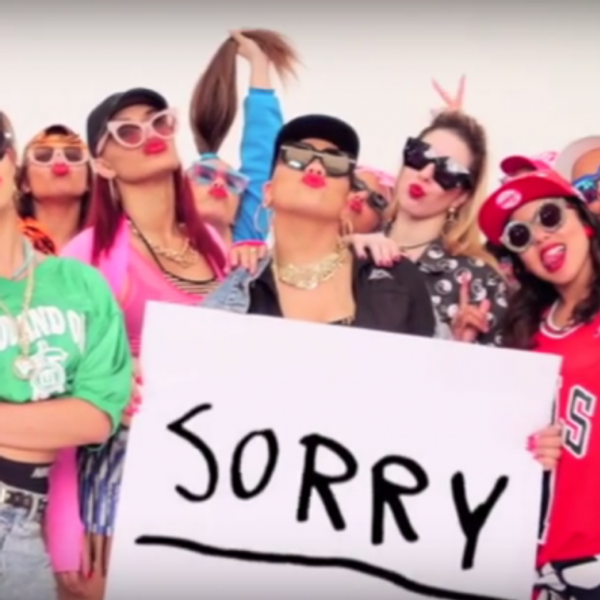"I'm sorry," I typed, and although I didn't have to say it out loud that time, my body reacted as if I had. My shoulders unconsciously hunched forward, the corner of my lip found its way between my teeth, and my hands began to sweat. I could hardly make eye contact with my phone.
What had I done wrong? Nothing significant: I think the accusation that time was "being too emotional" when I got upset at an insulting comment directed toward me. However, by the end of the conversation-turned-argument, I was somehow left guilt-ridden and apologetic.
Apologizing first became my crutch, my shield, and my attempt at escape from conflict in my sophomore year of high school. Eventually it bled into nearly every other aspect of my life. Any suggestion I made was sandwiched between apologies; if I saw even the slightest change of emotion in another person's eyes, I immediately broke eye contact and apologized; and I felt like the more I asked for forgiveness, the more people expected (though I accepted) that I be responsible for their well-being but forgetful of my own. I honestly though my impulsive apologizing was a sign of my submissive nature, when it was really a sign of someone else's dominating and manipulative one.
Although I was aware that I apologized frequently, for some reason it did not register as a problem until I was a freshman in college. It was right before finals week of my first semester. I was laying across my bed, and when I opened my phone to text a friend, the first suggested word was "I'm."
The second was "sorry."
I imagine if I had done the same thing in real life, not just the cyber world, the results would have been the same.
By apologizing so much, I was telling myself and the people who hurt me that I was responsible for everything that happened, whether that was true or not. Regardless of if they believed it was my fault as much as I did, they were free from blame and guilt, while I saddled all of it. By continuing to say sorry, I kept giving them free passes to cause me pain (as well as giving myself excuses that I deserved it). As a result, it kept happening, I kept apologizing, and eventually "I'm sorry" escaped from my lips without a first--let alone a second--thought. It severely impacted my self esteem and confidence, but I'll tell you what: I'm not sorry anymore.
I'm not sorry that I have an opinion, or that I want things for myself, or that I refuse to give something to another person just because they want it. I'm not sorry for seeing my friends or my family. I'm not sorry for refusing to be responsible for someone else's actions or emotions anymore. I'm not sorry that the truth hurt their feelings. I'm not sorry for removing myself from their life. I'm not sorry for moving on, or for another person's inability to do so themselves.
I am not sorry for existing.
My New Me's resolution (not just for the new year) is to quit excessively apologizing, but without sacrificing a cent of compassion. Hugs have started to replace the "I'm sorry" that used to follow a friend's daily complaints, none of which involved my misdoings. "Thank you for your time" has replaced "I'm sorry for bothering you." Apologizing for leaving a conversation has simply turned into saying that I have to leave, but promising to return later. Stating how I feel will not be followed by an apology for doing so, though I will absolutely remain mindful of the recipient's feelings. I will not say sorry for things I don't feel sorry for, and instead, I will use my apologies sparingly.
I know now that apologies certainly have their place in the world, though it is certainly not to just be filler words. They are words which should be used in times when I've truly done something wrong. Furthermore, they must also be accompanied by or replaced with actions which prove I will not do it again. (I have learned to expect the same thing of others, too.) They can be used to comfort a grieving family member or friend. They should be used when they are needed, and when I sincerely feel apologetic.
My New Me's resolution is, at face, simple. I will revel in my freedom to say I'm sorry...
as well as the freedom to not say it at all.





















